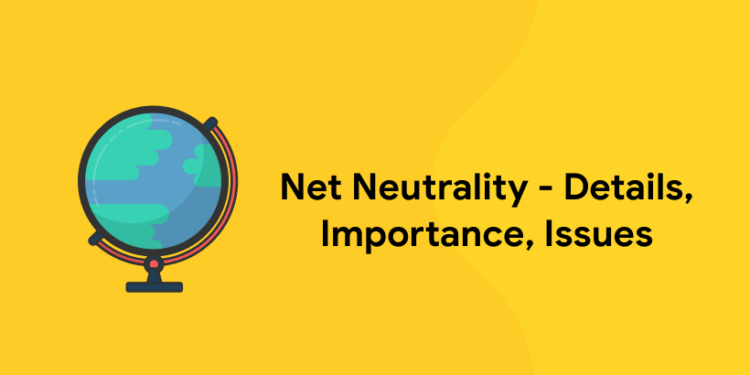Table of Contents
Net neutrality is a network design paradigm that argues for broadband network providers to be completely disengaged from what information is sent over their networks. Net neutrality is the concept that all data traffic on a network should be treated indiscriminately by organizations like internet service providers (ISPs) and governments, where internet service providers (ISPs) would be restricted from blocking, slowing down or speeding up the delivery of online content regardless of content, user, platform, application, or device. The term “network neutrality” was formulated in the year 2003, by Columbia University law professor Tim Wu in an article about online discrimination. Network neutrality promotes a free and open internet services, where users can access data without any restrictions, provided the content does not violate any laws. Net neutrality does not block all abilities that Internet service providers have to thwack their customers’ services.
Supporters of net neutrality helps to provide freedom of information exchange, promotes competition and innovation for Internet services, and support standardization of Internet data transmission which was essential for its growth. They argue that a neutral network will stimulate free speech and lead to further democratic involvement in the Internet. Opponents of net neutrality argue that network neutrality requirements would reduce their incentive to build out the Internet service, reduces competition in the marketplace, and may raise their operating costs which they would have to put across to their users. Net neutrality requires all internet service providers (ISPs) to provide equivalent level of data access and speed to all traffic, and that traffic to one service or website cannot be blocked or degraded. Net neutrality promoters suggest that by not allowing ISPs to determine the speed at which consumers can access specific websites or services, smaller companies will be more likely to enter the market and create new services. By looking at what is best for the public and for the internet as a whole, net neutrality laws should be put into place to preserve the characteristics of the internet that make it unique.
Net Neutrality Act
| PROS | CONS |
|
Preserves civil liberty on the internet by prohibiting internet service providers from blocking content. |
Net neutrality regulations are unnecessary because internet developed amazingly in their absence. |
|
Protects the consumers by preventing internet service providers from speeding, slowing or charging higher fees for online content. |
No free Internet access.
|
|
Promotes innovation and competition. |
Reduces investment in internet services resulting in more traffic and higher cost for consumers. |
|
Email marketing continues to drive revenue.
|
Porn and objectionable content thrives.
|
|
ISPs cannot go uncontrolled.
|
Inability to make internet accessible to the poor. |
It is true that many people fear government regulation of anything and net neutrality legislation is no different. By allowing the telecommunication companies to tier the internet, consumers will be forced to pay multiple times for the same service. Even still, the cases against net neutrality and for tiering internet are weak at best. Their arguments that content providers are receiving without any charge are speculative and in fact, the tele companies are paid twice already. There should be not be a third time payment for those tele companies who paid two times. Worse of all is their confusing nature that the free market will even out any inequities of their plans when they should clearly know that their industry is anything but a free market. If the internet is tiered, the greatest losses will be to the consumers.
.














